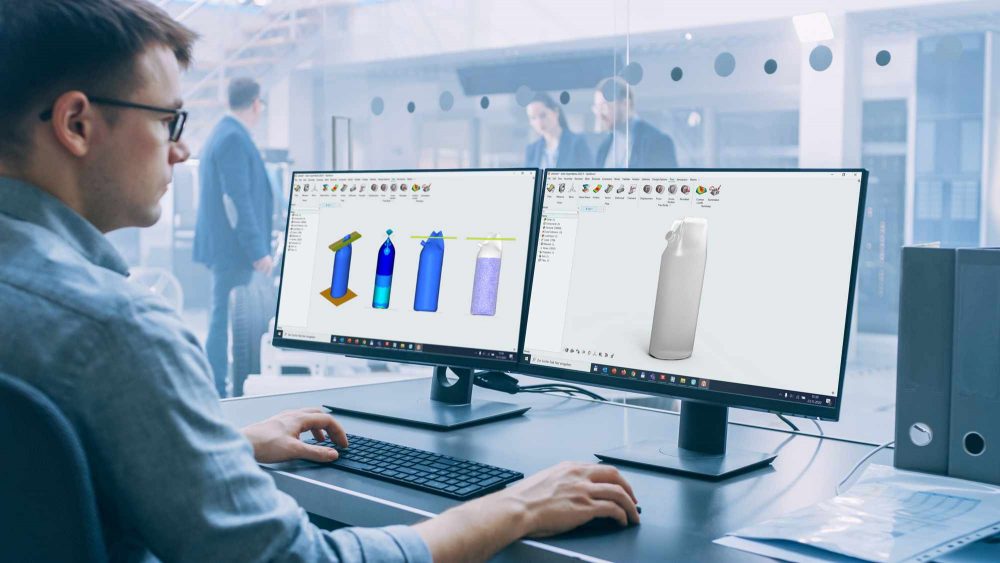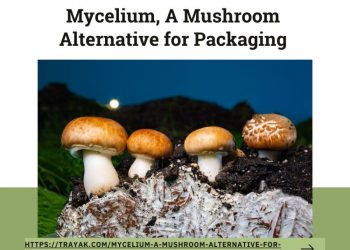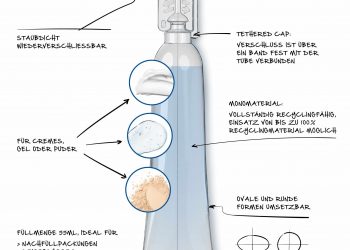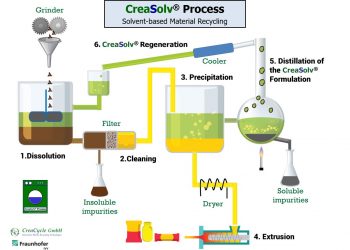To achieve its ambitious sustainability goals, the ALPLA Group uses virtual product design in its product development in which adaptable simulation solutions play a key role. The example of The Simple One illustrates how this works.
The ALPLA Group has been using simulation technology to develop plastic bottles and the mould construction needed for them since 2011. Virtual product development solutions are now firmly established within its product development as innovation catalysts. Simulation is a key tool alongside product development tools such as virtual and augmented reality, render engines and rapid prototyping, and its use helps the company to realise its existing and new sustainability goals more quickly, more successfully and more efficiently.
Innovation founded on simulation
To develop new products or improve the sustainability of existing products during development, manufacture, shipment and use, ALPLA uses, among other things, the simulation solutions developed by Altair and Dassault Systems.
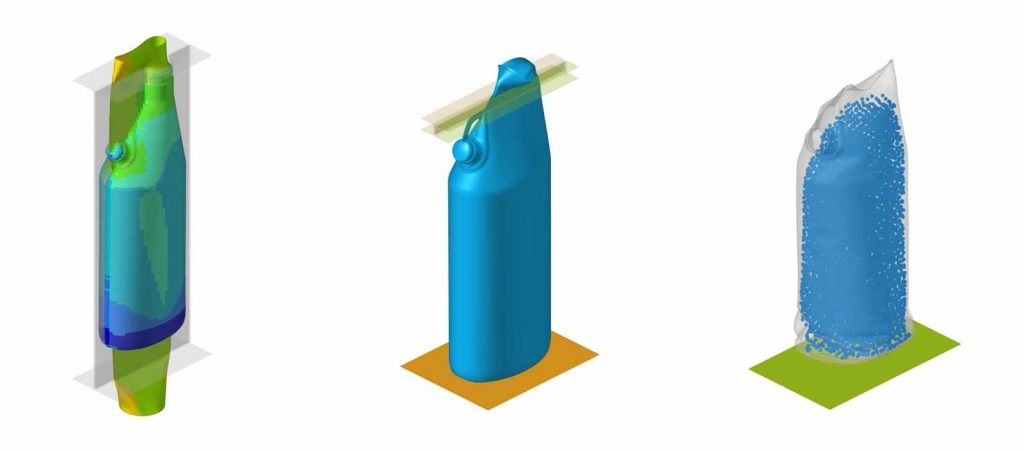
The Modelling & Simulation department at the ALPLA headquarters in Hard, Austria, develops methods for the virtual mapping of the packaging manufacturing process that allow both the processes and material distribution to be optimised. The attributes of the packaging can then be predicted on the basis of a simulation. In addition, the feasibility of design modifications and their influence on attributes such as pressure resistance and safety can be tested. Process simulation and simulation of the end product are performed sequentially in order to be able to assess the influence of a geometric design modification. The increasing automation of the existing simulation processes also boosts efficiency. These developments make it possible to solve standard problems much faster. ‘Being able to adapt commercial software to our needs means we can work quickly and efficiently – as well as precisely how we need to for our specific area,’ says Oswald Valtiner, Head of Modelling & Simulation at ALPLA.
The more simply simulation can be applied, the more comprehensively it is used and the greater its benefit to product development. The award-winning The Simple One packaging solution is a good example of the importance of simulation at ALPLA.
The Simple One ‑ an ALPLA innovation driven by simulation
Refill solutions are often the preferred option when it comes to extending the product life cycles of high-quality primary packaging in the interests of sustainability. But these too need to be made as sustainable as possible. With its The Simple One product, ALPLA set itself the goal of developing a resource-conserving refill packaging form which was extremely light, involved low material usage, boasted a high proportion of recycled materials and stood out visually compared with the usual refill pouches due to a new design.
Thanks to simulation, ALPLA was able to quickly and efficiently identify the ideal solution, taking into account the design and manufacturing requirements. The result is an ultralight bottle which can be made entirely of recycled HDPE and is fully recyclable. The especially sustainable packaging solution was developed in collaboration with the cosmetics brand Susanne Kaufmann as the first product of its kind to be brought to market maturity and was successfully rolled out as refill packs for the brand’s glass bottles.
With the aid of simulation, ALPLA succeeded in developing an innovation that goes far beyond the fulfilment of sustainability goals and customer wishes – The Simple One has gone on to win multiple design awards.
Oliver Unterlechner, Ideation Manager, Corporate Development & Innovation, ALPLA

